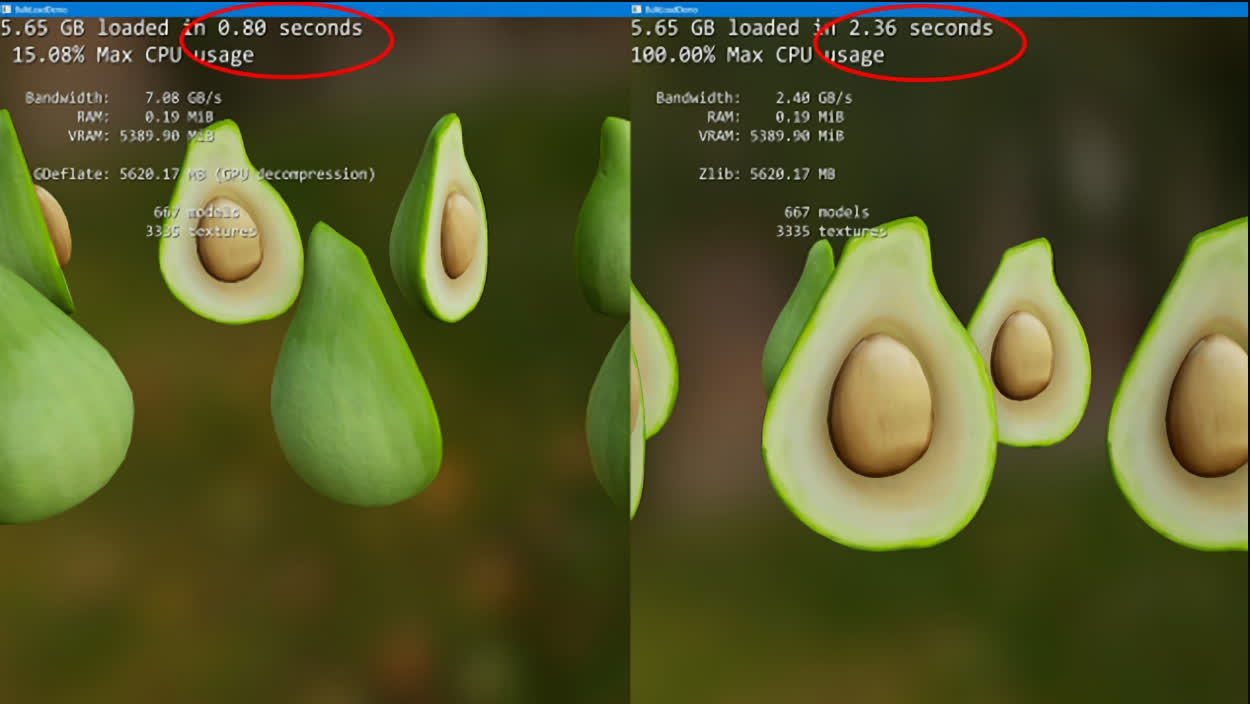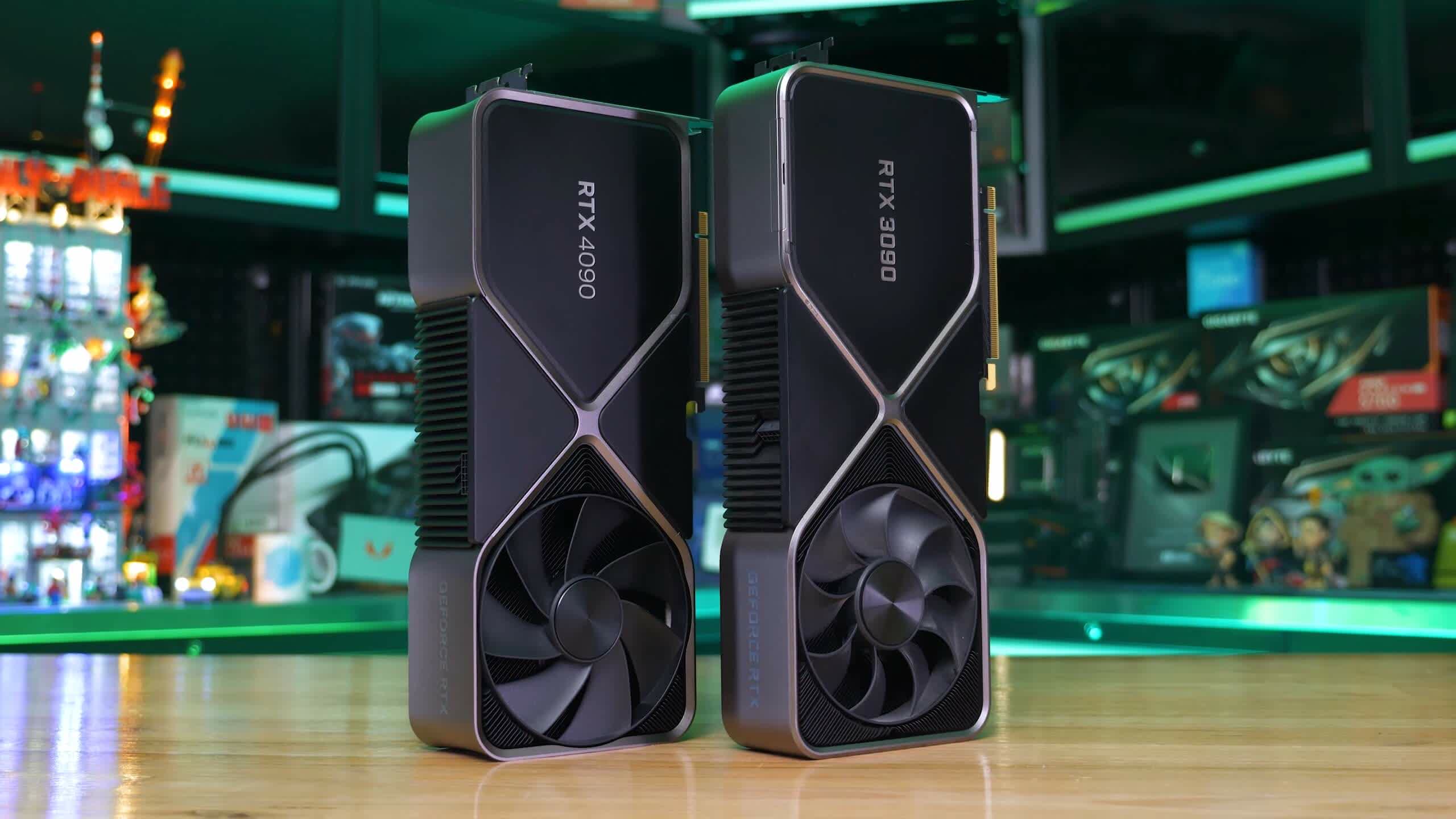In a nutshell: Microsoft is on track to release DirectStorage 1.1 with GPU decompression to developers by the end of 2022. It's unclear which games will be the first to take advantage of it, but Microsoft promises to provide more API specifics and documentation with the release coming soon.
For those needing a quick refresher, games require massive amounts of data to build their immersive worlds. Every object, character and landscape has assets attached that dictate various aspects like color, shape and lighting. Collectively, the assets amount to hundreds of gigabytes of data which gets compressed to reduce the overall size of the game.
When it comes time to utilize the assets, they must first be transferred to system memory where they are then decompressed by the CPU before being moved into GPU memory for use as needed.
DirectStorage 1.0 dealt with the transfer process. Combined with advances in Windows 11, systems equipped with NVMe drives could use DirectStorage 1.0 to speed up load times by as much as 40 percent in some cases. With DirectStorage 1.1, Microsoft is turning its attention to decompression performance.
Up to this point, asset decompression has typically been optimized for CPUs only. DirectStorage 1.1 moves the task to the GPU which frees up the CPU to perform other jobs.

In an optimized test to highlight performance benefits from the test, scenes were shown to load nearly three times faster. The compression format used was GDeflate, a novel lossless standard optimized for high-throughput decompression with deflate-like compression ratios that was developed by Nvidia and Microsoft. In the test, the CPU was nearly freed up entirely.
Microsoft said it is working with AMD, Intel and Nvidia on drivers tailored to the format.
The tech certainly sounds enticing, but Microsoft's announcement did leave us with more questions than answers. Moving decompression duties off the CPU will of course free it up, but what sort of impact will the extra load have on the GPU? Are we going to see frame rates take a substantial hit to make way for faster load times? If so, gamers will no doubt have to dial in the sweet spot for the optimal gaming experience.
